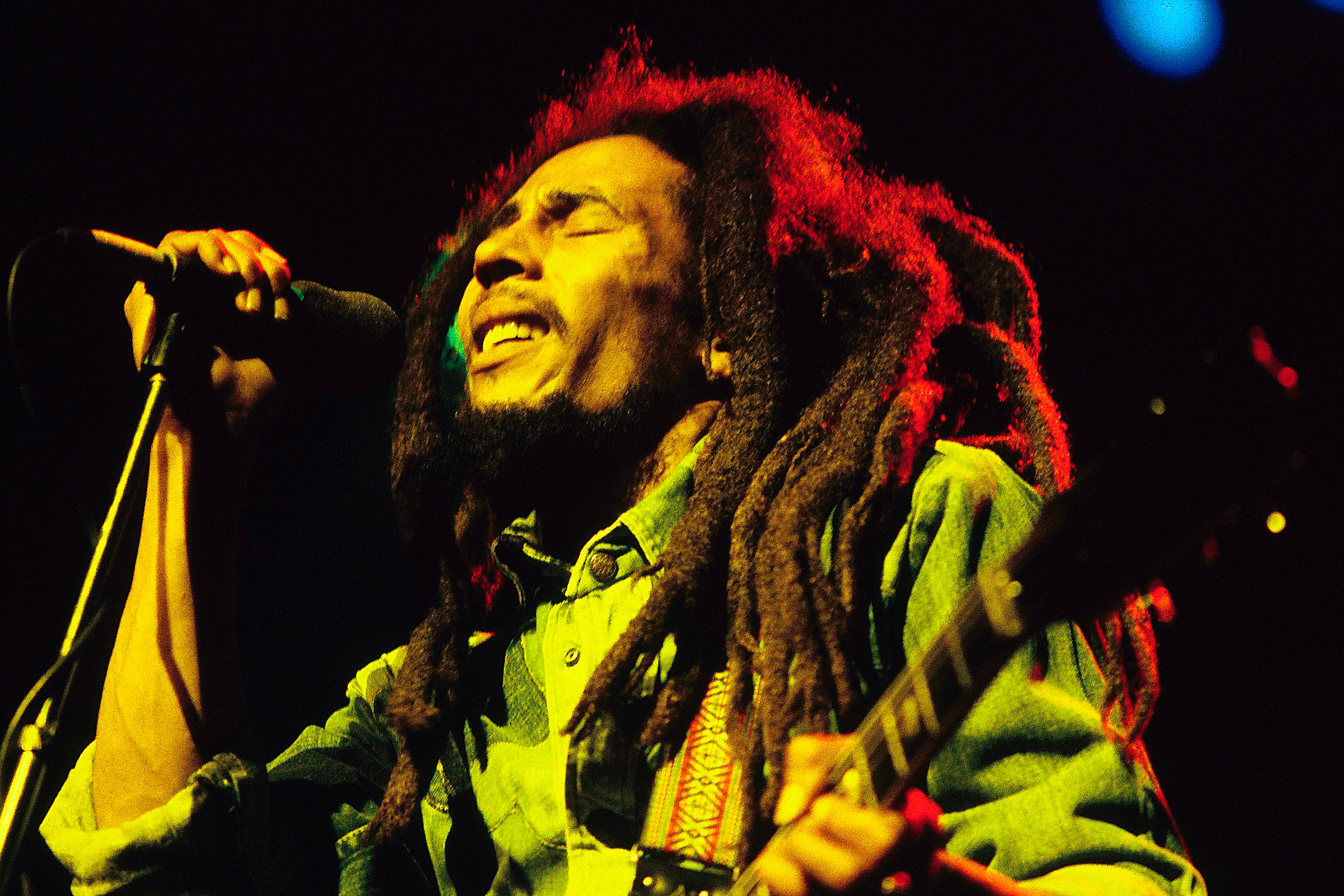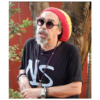Bob Marley was just 36 years old when he died of cancer in 1981, but the Jamaican-born reggae legend left a massive musical legacy.
In addition to selling millions of albums — his retrospective Legend has spent more than 570 weeks on the Billboard Top 200 chart since its 1984 debut—Marley received The United Nations Peace Medal of the Third World in 1978. He was posthumously inducted into the Rock and Roll Hall of Fame in 1994. The BBC proclaimed Marley’s “One Love” as Song of the Millennium. And in 2001, Marley was awarded a Lifetime Achievement Award at the Grammys.
Marley’s music continues to inspire and influence music, fashion, politics and culture around the world. But as the seven facts below illustrate, he lived an exceptionally full life in a very short amount of time.
He was derogatorily nicknamed “White Boy”
Nesta Robert Marley was born on February 6, 1945, in St. Ann Parish, Jamaica. His father was a white British naval captain named Norval Sinclair Marley, who was nearly 60 at the time. His mother, Cedella, was a 19-year-old country village girl. Because of his mixed racial makeup, Bob was bullied and derogatorily nicknamed “White Boy” by his neighbors. However, he later said the experience helped him develop this philosophy: “I’m not on the white man’s side, or the Black man’s side. I’m on God’s side.”
He liked to spook people by predicting their futures
When he was a small child, Marley seemed to have a knack for spooking people by successfully predicting their futures by reading their palms. At seven, after a year spent living in the ghettos of Kingston, he returned to his rural village and declared that his new destiny was to become a singer. From then on, he refused all requests to read palms. By his early teens, Marley was living in Kingston’s Trench Town, a desperately poor slum.
He and his friends Bunny Livingston (given name, Neville O’Riley Livingston) and Peter Tosh (given name, Winston Hubert McIntosh) spent a lot of time listening to rhythm and blues on American radio stations. They named their band the Wailing Wailers (later shortened to the Wailers) because they were ghetto sufferers. As practicing Rastafarians, they grew their hair in dreadlocks and smoked ganja (marijuana) because they believed it to be a sacred herb that brought enlightenment.
He achieved international stardom
The Wailers recorded for small Jamaican labels throughout the 1960s, during which time ska became the hot sound. Marley’s lyrics took a more spiritual turn, and Jamaican music itself was changing from the bouncy ska beat to the more sensual rhythms of rock steady. When the group signed with Island Records in the early 1970s, they became popular with international audiences.
He produced a string of politically charged albums
When Livingston and Tosh left for solo careers, Marley hired a new band and took center stage as singer, songwriter and rhythm guitarist. He produced a string of politically charged albums that reflected the keen social consciousness that came to define his lyrics. He wrote about the soaring unemployment, rationed food supplies and pervasive political violence he saw in Jamaica, which transformed him into an influential cultural icon.
In 1976, two days before he was set to play a free “Smile Jamaica” concert aimed at reducing tensions between warring political factions, an unknown gunman attacked him and his entourage. Though bullets grazed Bob and wife Rita Marley, they electrified a crowd of 80,000 people when both took to the stage with the Wailers. The gesture of defiant survival heightened his legend and further galvanized his political outlook, resulting in the most militant albums of his career.
Marley had several children and adopted children as well
A little history of Marley and his wife Rita: He married her at 21 (she was a Sunday school teacher at the time) and stayed married to her until his death. He adopted her daughter and they had four children together during their marriage. Marley also had at least eight more children with eight different women. Rumors allude to several other unclaimed children but those named officially are: Imani, Sharon, Cedella, David (aka Ziggy), Stephen, Robbie, Rohan, Karen, Stephanie, Julian, Ky-Mani, Damian and Madeka.
He is the front of a global marijuana brand
As celebrity endorsements go, it certainly seems like a perfect fit: Under the label Marley Natural, the reggae icon fronts a global marijuana brand. Products include the “heirloom Jamaican cannabis strains”—purportedly the very same one Marley himself purportedly enjoyed—along with smoking accessories, creams, lotions and other items. Marley’s daughter Cedella calls the brand an “authentic way to honor his legacy by adding his voice to the conversation about cannabis and helping end the social harms caused by prohibition. My dad would be so happy to see people understanding the healing power of the herb.”
He’s one of the top-earning dead celebrities
In late 2018, Forbes Magazine listed Marley as fifth on the list of the highest-earning dead celebrities. In addition to Marley Natural, his family has also licensed brands of coffee, audio equipment, apparel and lifestyle goods. Of course, Marley has also sold more than 75 million albums in the past two decades. Legend, a retrospective of his work, is the best-selling reggae album ever. More than 12 million copies have been sold internationally and several thousand new units sell every week.
Marley died of cancer on May 11, 1981 in Miami. His body was flown back to Jamaica to be buried and, in one day, 40,000 people filed past his coffin as his body lay in state in Jamaica’s National Arena.








